Jon Yates is slender, ginger and no longer in a meeting that he should be in. He is on the phone being harassed by me – and it’s all the Queen’s fault.
Amid weeks of chat about academy conversions, almost no one noticed that new laws were being planned (and announced in Wednesday’s Queen’s Speech) to force schools into promoting the National Citizen Service (NCS), a programme of experiences for 16 and 17-year-olds completed during school holidays.
Yates had noticed the plan, though, because he is strategy director at The Challenge, the organisation that delivers many of the service’s places. He is also one of the people who came up with the basic idea.
Having left his meeting to give the lowdown on how it came about, and why it deserves such royal treatment, he starts to explain. Fast.
I wanted to connect people across invisible dividing lines
“The Challenge was set up in 2009 by me and two other people. It was made up by three of us sat around a kitchen table.
“I should say that before that I had a career that makes no sense whatsoever. I came to London to become a stand-up comedian, which I failed drastically at. No one threw anything at me, but it was on the edge of possibility.
“So I stumbled into doing community work in Newham, and found myself in this incredibly mixed environment
for the first time in my life. I grew up in Plymouth, and I have ginger hair. It is fair to say that where I grew up, ginger hair was the dominant ethnic minority. It’s not the most diverse place.
“I then went to university in Oxford, which was its own bubble. And then suddenly I found myself in Newham as a community worker, and found myself in a complete mix of people – white working class, professionals, Muslims: first and second-generation, black Afro-Caribbean: first, second and third-generation.
“I was struck by how incredibly tolerant Newham was, remarkably so, but how often I spent my time in spaces with one of those groups rather than in spaces where there were all four groups, together.
“Then, I accidentally applied to McKinsey [the management consultants] having clicked the wrong button on a website. It wasn’t what I intended to do,” he laughs.
What did he intend to do? “I don’t know! I had a panic. When you’ve planned to become a comedian in London it suggests that you’re not the best planner. But I swear it never said McKinsey on the advert because I would have been too terrified to apply and assumed myself too incompetent for the whole thing. Generations and generations of my family are teachers and vicars, that’s what we do.”
To everyone’s surprise, especially his own, he passed the interview and “got a big job advising companies and governments on things”.
But his community spirit hadn’t died. “I still had in my heart that I should try to save the world. So I went to work in international development, which ended with me finding myself in Nairobi around the time that there was a lot of violence because of a disputed election. What I realised, from the middle of it, was that the groups were being ramped up by mistruths and they didn’t know each other well enough to know that these things weren’t true.
“I was then struck by how horribly disconnected I was. McKinsey is very global, but you don’t spend much time with people who aren’t well educated, or who aren’t in a well-paid profession. And I realised I was moving from one little bubble to another: Portsmouth, Oxford, Newham. Marvellous places; but their own little bubbles. And then I saw a bubble go horribly wrong in Kenya. So when I came back to the UK I desperately wanted to do something entrepreneurial that would connect people together across these invisible dividing lines.”
The Challenge was designed as a programme to attract people from all income and ethnic groups and get them to do physical activities, plus service elements.
This eventually became the model for the National Citizen Service, and it expanded from three people in a kitchen, to 700 staff.
He believes the programme works because it mixes people from such different backgrounds: “We presume that any time we bring together people there will be social awkwardness. The key is to get them doing stuff together. That’s why in NCS we do abseiling, climbing, and canoeing. Not because we want brilliant canoeists, but because when you do things together people forget they are different.”
He agrees that being singled out for promotion in schools could annoy other charities also trying to work in them, but he encourages such groups to contact NCS, as it works with more than 2,000 other organisations and recommends
local opportunities. Instead of everyone trying to knock on school doors, he believes NCS can be a conduit.
Each place on the programme costs about £1,500 but most of that is covered by the government – bar a £50 fee that comes from participants (and bursaries are available). David Cameron has also committed to funding a place for every 16 and 17-year-old who wants one. But if they do all take it up, the cost will be in the billions. Is it worth it?
Yates says the programme is regularly evaluated by independent firms and the reports are published on the website. He also notes the benefits of the programme on communication skills – something employers regularly say they want.
“We are also on track to become the most diverse country in the world in the next 30 years and our young people have to be ready to flourish in that world,” he says.
With enthusiasm and arguments like that, it’s no wonder the Queen is on his side.







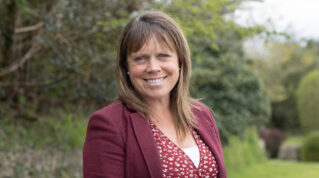
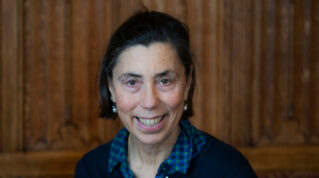
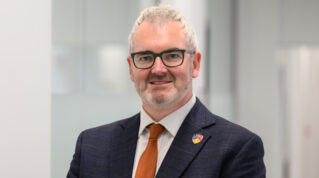
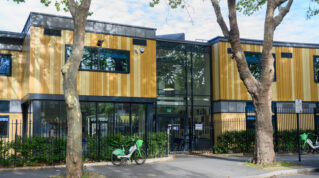

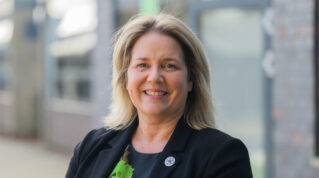

Your thoughts